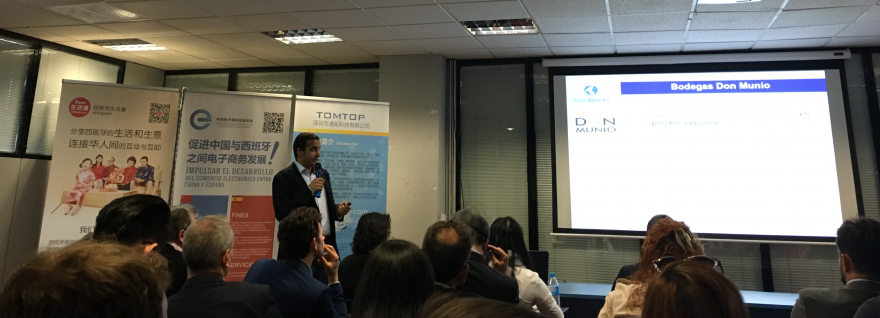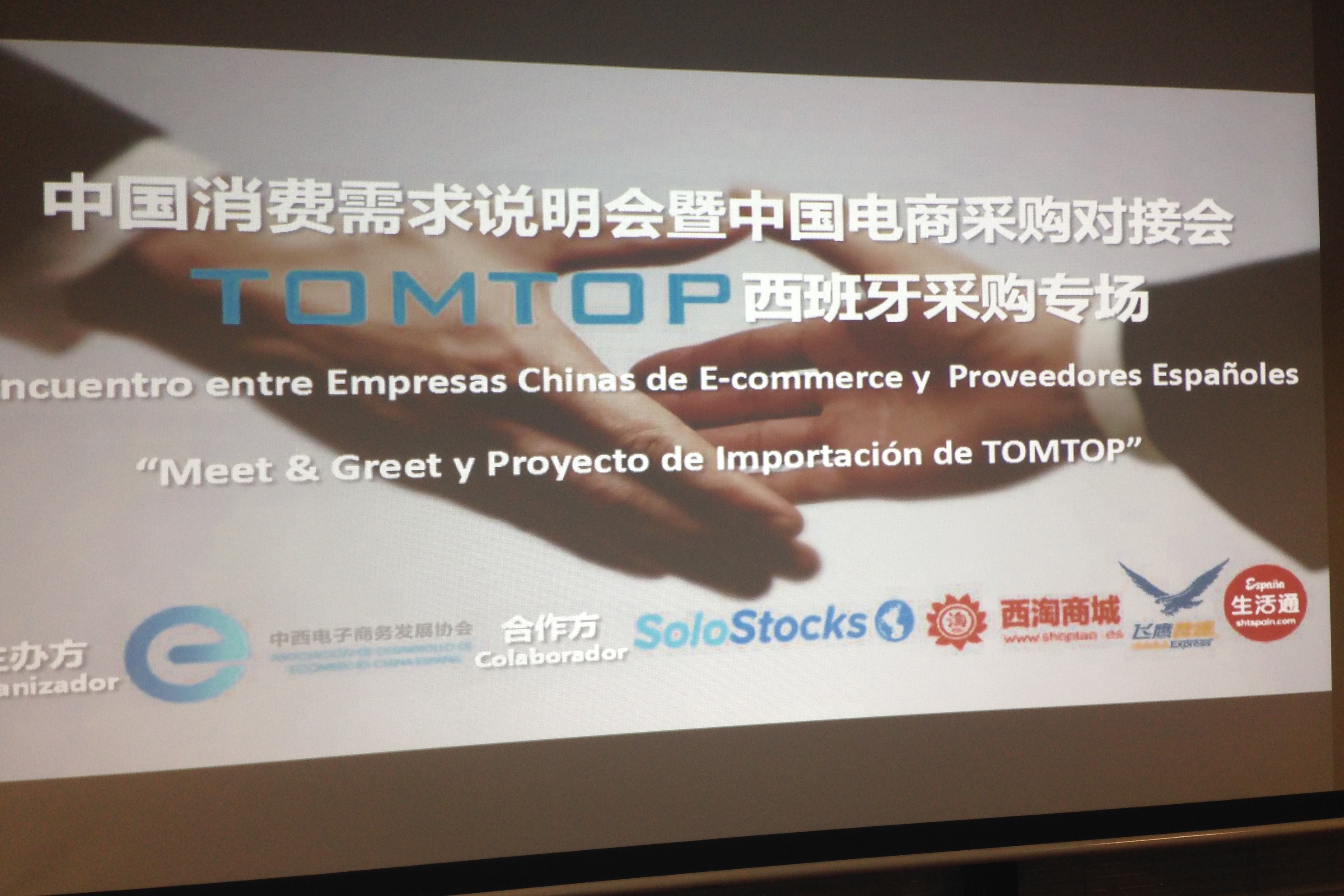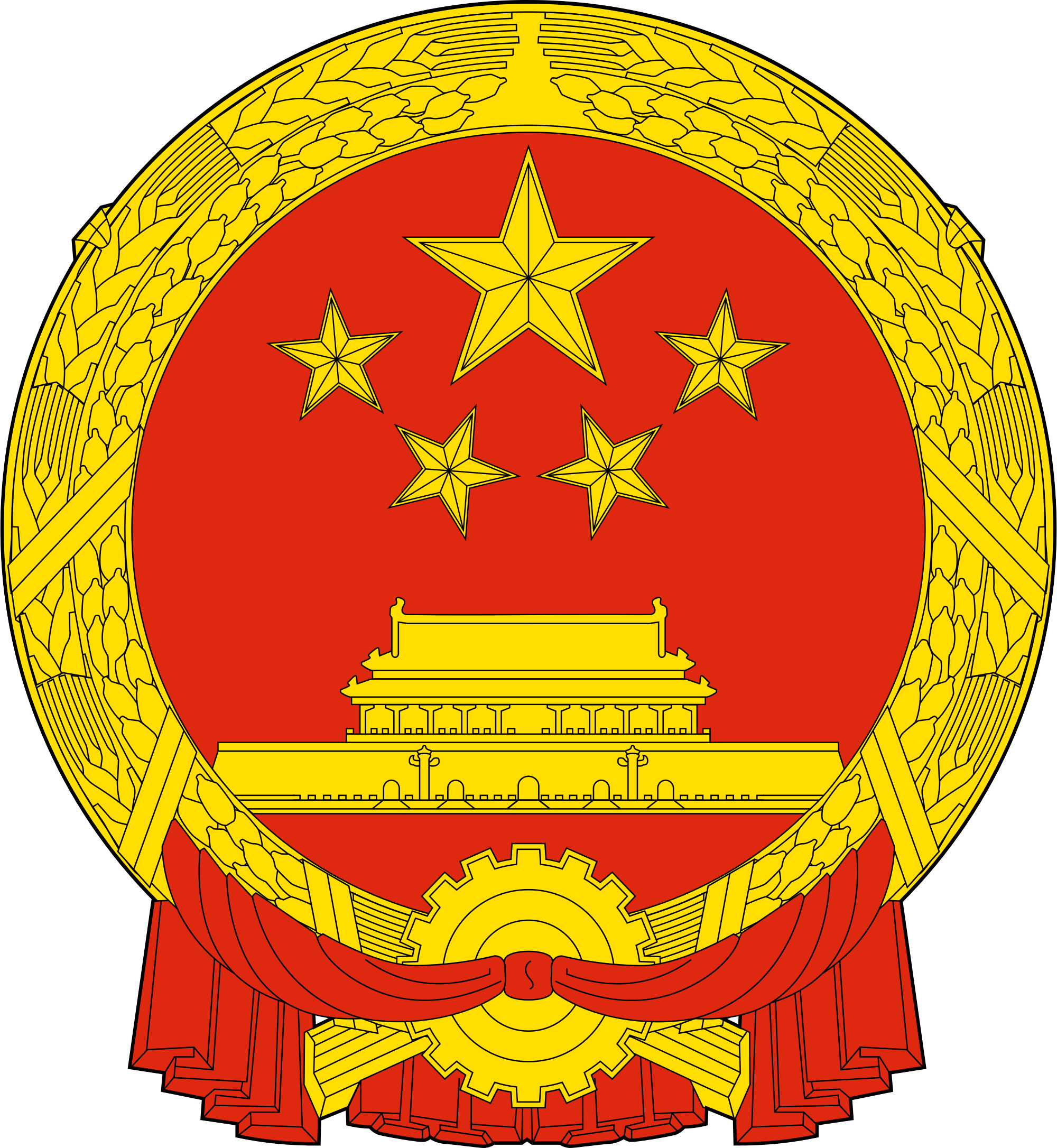2Open with Chinese E-commerce companies and Spanish suppliers
In 2 Open we like to be updated. We are constantly attending events that are related to our business scope (Digital marketing and E-commerce in China) so that we can have all the relevant information on the current situation in order to provide our customers with the best posible services.
In this case, 2Open attended a networking event in Spain that involved Chinese e-commerce companies and Spanish suppliers. The topics covered in the event were related to E-commerce and Digital marketing strategies, more specifically, to the different ways brands have to adjust their products so as to sell them through e-commerce platforms with particular emphasis on the booming of Chinese cross-border e-commerce, its advantages ,and the new fiscal legislation that will be implemented starting on April 8th.

Apart from the information exchange, we were glad to find out that some of our clients (SoloStocks, Amvos, Ecoficus) also attended the event. We also had the chance to talk with other brands who are interested in selling their products online in China and/or doing Digital Marketing to improve their performance.

All in all, it was a pleasant event filled with interesting people finding new opportunities. If you want to know how we can help you to maximize your Sales & Marketing efforts in the Asian giant, please do not hesitate in contacting us. We will be more than happy to talk about your current goals and situation and provide you with the best solutions for your business needs.

This article was edited by Andres Arroyo Olson from 2Open.
It’s official! Taxation reform will start on April 8
On March 24, 2016, the Ministry of Finance of the People’s Republic of China released an article on its website to finally put an end to the on-going rumours. Turns out that all the gossips were right all along, so brace yourselves because the taxation reform for imported retail products through cross-border e-commerce is coming.
According to the article approved by the State Council, starting on the 8th of April 2016, China will implement the import tax policy for cross-border e-commerce retail sales (business to consumer, or B2C), and also adjust the tax policy on personal postal articles.
Currently, items for personal use are considered to be personal postal articles, these types of items represent a reasonable number of cross-border imported goods and will be taxed according to the new tax policy on personal postal articles. The new personal postal article tax is targeted on non-trade imported goods; it combines tariffs, import VAT and consumption tax. Generally speaking, the tax rates of personal postal article tax will be lower than those of imported goods for trade.

Products for cross-border e-commerce retail sales are imported through postal channels and these work differently than the traditional trade of files and correspondences, this is the main reason why unfair competition exists between cross-border e-commerce retail imports and general trade imports within the same category. This is the main reason why cross-border e-commerce imported goods will be considered as merchandise and charged with tariffs, import VAT and consumption taxes.
As a response to consumer’s reasonable demand, the single transaction limit for cross-border e-commerce retail goods will be increased from 1000 RMB to 2000 RMB, furthermore, the annual limit will also be increased to 20000 RMB. For cross-border e-commerce retail goods within the 2000 RMB price limit the tariff will be 0% with an import VAT and consumption tax of 70 % of the current statutory tax. As for the goods that surpass the single transaction or annual limit, they will be charged with full taxation under the general trade model.

Taking into account current regulatory conditions, for the moment, only cross-border e-commerce retail imports that can successfully provide trading, payment, logistics and other related electronic information, will be taken under the scope of the new policy. Personal belongings and imported goods that are unable to provide related electronic information will remain subjects to current regulations. Meanwhile, to optimize the taxation structure, simplify customs declaration and tax payments, and improve customs clearance efficiently for passengers and customers, China will adjust tax policies on personal postal articles. The changes include a reduction from the current four tax items (tax rates: 10%, 20%, 30% and 50%) to three. Under the new policy, tax item 1 is mainly for commodity from MFN with zero tariffs; tax item 3 is mainly for high-end commodity with consumption tax; the rest will be subject to tax item 2. Tax rates for the three new tax items will be 15%, 30% and 60% respectively.
We will have to wait and see how this affects cross-border e-commerce in the following years. Any enquiries you may have about how to increase sales and manage a successful ecommerce business model do not hesitate in contacting us. Our group of specialist will be more than happy to assist you.
This article was edited by Andres Arroyo Olson from 2Open.
References
http://gss.mof.gov.cn/zhengwuxinxi/gongzuodongtai/201603/t20160324_1922972.html



